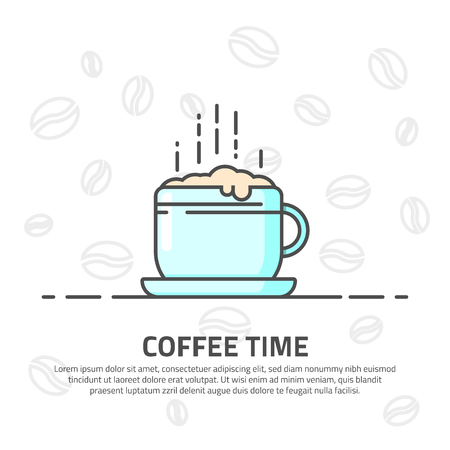1. Introduction: The Rising Coffee Culture in India
In the heart of India, a fresh aroma is brewing as coffee steadily claims its place in the daily lives of urban households. Traditionally, India has been a nation of tea lovers, with chai cutting across social and economic divides. However, over the past decade, there has been a remarkable shift towards espresso and café-style coffee, fuelled by evolving lifestyles and the booming café culture in cities like Bengaluru, Mumbai, and Delhi. The younger generation, global exposure, and the digital age have all contributed to this change. International chains such as Starbucks and homegrown favourites like Café Coffee Day have made high-quality coffee accessible and aspirational, inspiring many to recreate that authentic café experience at home. As a result, Indian homes are now embracing sophisticated espresso machines, seeing them not just as appliances but as gateways to a richer coffee ritual. This surge in demand has paved the way for a vibrant market of home espresso machines tailored to Indian preferences—a trend that’s reshaping how India wakes up each morning.
Understanding Espresso Machines: Types and Features Favoured in India
As coffee culture grows across Indian metros and tier-2 cities, home espresso machines are no longer just a luxury for connoisseurs—they’re becoming essential kitchen gadgets for many households. With this surge in demand, it’s important to understand the different types of espresso machines available and which features resonate most with Indian consumers. Below, we break down the various machine types and highlight local preferences regarding size, power consumption, and ease of maintenance.
Types of Home Espresso Machines
| Type | Description | Popularity in India |
|---|---|---|
| Manual Espresso Machines | Require full user control over pressure and brewing; best for enthusiasts seeking authenticity. | Niche following among passionate coffee lovers; less common due to complexity. |
| Semi-Automatic Machines | User controls grinding and tamping, but machine handles water flow and temperature. | Steadily rising in popularity; appeals to those who want a hands-on yet convenient experience. |
| Capsule (Pod) Machines | Use pre-packaged pods/capsules; minimal effort required; consistent results every time. | Extremely popular in urban homes due to convenience and ease of use; brands like Nespresso and Coffeeza lead the segment. |
| Fully Automatic Machines | All steps automated—from grinding beans to brewing espresso; often feature built-in milk frothers. | Preferred by busy professionals and families; considered a status symbol in many Indian households. |
Features That Matter to Indian Consumers
Size & Compactness
With space at a premium in most Indian kitchens, compact machines that fit neatly on countertops are especially sought after. Foldable drip trays or detachable water tanks add further appeal.
Power Usage & Voltage Compatibility
India’s unique power grid makes energy efficiency crucial. Most popular models come equipped with 220–240V compatibility and low wattage consumption to prevent overloads or excessive electricity bills—a key consideration for environmentally conscious buyers.
Ease of Cleaning & Maintenance
The busy pace of life in cities like Mumbai, Bengaluru, and Delhi means home appliances must be easy to clean. Detachable parts, self-cleaning programs, and descaling alerts are highly valued. Capsule machines, which require minimal cleaning, have gained traction especially among young professionals and nuclear families.
Additional Desirable Features
- Milk Frother: For making cappuccinos or lattes—a growing trend among younger Indians.
- Cup Warmer: Ensures café-style presentation at home.
- User-Friendly Controls: Touchscreens or simple dials cater to all age groups.
- Aesthetic Design: Sleek finishes that complement modern modular kitchens are always a plus point.
This nuanced understanding of machine types and features is guiding both international brands and local manufacturers as they tailor their offerings to suit Indian tastes—making the dream of café-quality espresso at home a reality for more people than ever before.

3. Top Indian and International Brands Making a Mark
India’s coffee culture has blossomed in recent years, giving rise to both innovative homegrown brands and the widespread popularity of global giants. When it comes to the best home espresso machine brands, Indian households are spoilt for choice with a rich blend of local expertise and international prestige.
Leading Indian Espresso Machine Brands
Several Indian companies have emerged as trusted names for quality espresso machines tailored for local preferences. Morphy Richards, though originally British, is now widely recognised as a household brand across India, offering machines designed with the Indian consumer in mind. Another notable mention is Bajaj, an indigenous powerhouse known for its reliable appliances, including compact espresso machines that suit the space constraints and budgets of urban homes. Local startup brands like Ristretto Labs are also making waves by blending Italian brewing techniques with Indian design sensibilities, focusing on durability and affordability.
Popular International Brands in Indian Homes
The allure of Italian coffee craftsmanship remains strong. Brands like De’Longhi and Philips have carved out significant market share in India, offering a range of models from entry-level to premium fully-automatic machines. Nespresso is a status symbol among urban professionals, with its capsule-based convenience aligning perfectly with fast-paced city lifestyles. For those seeking traditional authenticity, Breville and Smeg attract coffee aficionados who appreciate fine engineering and stylish aesthetics.
Why Both Matter: The Blend of Local and Global
The coexistence of Indian and international brands reflects India’s cosmopolitan spirit. Homegrown brands cater to regional tastes, economic realities, and everyday convenience, while global players bring aspirational value, advanced technology, and the promise of café-quality brews at home. This synergy ensures that Indian coffee lovers can find an espresso machine that matches their palate, lifestyle, and budget—whether they’re just starting out or are seasoned connoisseurs.
Cultural Resonance and Consumer Trust
Trust is paramount for Indian consumers; hence, brands that offer robust after-sales support and easy access to spare parts enjoy loyalty. Both Indian manufacturers and international brands operating in India have invested in local service networks, making ownership hassle-free. As the market continues to evolve, this blend of tradition and modernity is shaping a uniquely Indian espresso experience—one cup at a time.
4. Trending Features: What Indian Consumers Are Looking For
When it comes to home espresso machines, Indian buyers have distinct preferences shaped by their unique beverage culture and lifestyle needs. As the coffee scene grows in cities like Bengaluru, Mumbai, and Delhi, consumers are increasingly seeking appliances that merge traditional tastes with modern convenience. Below is a look at the most sought-after features among Indian espresso machine buyers:
| Feature | Why It’s Popular in India |
|---|---|
| Milk Frothers | Essential for preparing creamy chai lattes—a beloved Indian twist—as well as cappuccinos and lattes. Many families enjoy both coffee and masala chai, so a good frother is non-negotiable. |
| Custom Brew Settings | Diverse preferences across households mean adjustable strength, temperature, and shot size settings are highly valued. This allows users to experiment with South Indian filter-style coffee or strong espresso shots. |
| Compact & Space-Saving Designs | Kitchens in urban apartments are often small, making sleek, compact machines a practical choice. Foldable trays or detachable water tanks also add to ease of use. |
| Energy Efficiency | With rising electricity costs and an increased focus on sustainability, energy-saving modes or automatic shut-off features are very attractive to Indian households. |
Cultural Adaptability: Beyond Just Coffee
Unlike Western markets where pure espresso dominates, Indian consumers often desire versatility. Machines that can easily handle both robusta-heavy beans (common in South Indian blends) and Arabica for international-style espresso are trending. The ability to prepare spiced beverages or even hot water for instant noodles or tea adds extra value.
User-Friendly Operation Matters
Many first-time buyers in India seek easy-to-use interfaces—digital displays in English (sometimes Hindi), one-touch buttons, and clear cleaning instructions. Brands that offer local-language support or video tutorials gain significant trust among Indian families.
What’s Next for the Indian Market?
The convergence of global café trends with local habits means the next wave of popular brands will likely focus on smart connectivity (app-based controls), even more compact footprints, and integration with traditional Indian beverage preparations—all while maintaining affordability and reliability.
5. Price Ranges and Value for Money
When it comes to choosing the best home espresso machine in India, price is a decisive factor for most families. The Indian market offers a diverse spectrum of options, from entry-level devices perfect for first-time users to premium machines catering to true coffee connoisseurs. Let us explore how these popular brands stack up across different budget segments, with an eye on what truly matters to Indian households: affordability, durability, and reliable after-sales support.
Budget-Friendly Espresso Machines
Brands like Pigeon, Bajaj, and Inalsa are well-regarded for their affordable yet functional espresso machines. Priced under ₹5,000 to ₹10,000, these models typically offer basic features such as steam wands and easy-to-use controls—ideal for daily chai-coffee drinkers looking to experiment without burning a hole in their pockets. Many Indian consumers appreciate that these brands have established service networks even in smaller cities, ensuring hassle-free repairs and maintenance.
Mid-Range Choices: Balancing Features and Value
The mid-range segment (₹10,000–₹25,000) is dominated by brands like Philips, Morphy Richards, and Prestige. These machines usually come with enhanced brewing technologies, milk frothers, multiple cup size options, and sleeker designs. For urban Indian households where both aesthetics and functionality matter, these brands offer a compelling balance. Their widespread availability through both online marketplaces and local retailers makes them accessible across metros and tier-2 cities alike.
Premium Segment: Investing in Experience
If you are willing to invest over ₹25,000 for your home café setup, international names like De’Longhi, Breville, and Rancilio come into play. These brands are synonymous with advanced features—digital displays, customizable brewing profiles, and professional-grade pressure systems. While the price tag may be high, discerning Indian consumers value the long-term durability and superior taste experience. However, it’s worth noting that after-sales support can be variable; imported brands often rely on third-party service partners in India, so it’s wise to check service centre availability in your city before purchase.
Affordability vs. After-Sales Support: The Indian Perspective
For many Indian families, buying an espresso machine is not just about initial cost but also ongoing peace of mind. Brands with strong after-sales networks—like Philips and Bajaj—often win favour over lesser-known or luxury imports that lack widespread service coverage. In our culture where appliances are expected to last years (if not decades), the ability to easily source spare parts or call a technician locally is invaluable.
Conclusion: Making an Informed Choice
No matter your budget, the Indian espresso machine market offers something for everyone. By comparing brands not only on price but also on post-purchase support and value-added features, you can find an option that suits both your palate and your pocket—a true reflection of the ‘jugaad’ spirit that defines so many Indian homes.
6. User Reviews and Community Recommendations
Across India’s thriving coffee community, home espresso machines are not just kitchen gadgets—they are a part of daily rituals and lifestyle statements. Indian coffee enthusiasts often gather on forums, YouTube channels, and Instagram pages to share their experiences with leading espresso machine brands. The consensus from these discussions reveals that performance, durability, after-sales service, and ease of use are the most valued factors when selecting a machine for the Indian home.
What Indian Coffee Lovers Are Saying
Users consistently praise brands like DeLonghi and Philips for their user-friendly interfaces and reliable espresso output, making them favourites among beginners and seasoned home baristas alike. Many point out that these brands offer models which adapt well to Indian kitchen spaces—compact, easy to clean, and energy-efficient. Coffee influencers such as Simran Kaur (@simranbrews) and Rajiv Menon (@indiancoffeeguy) often recommend these brands in their reviews, noting especially the consistency in crema and steam wand performance for frothing milk—a must for cappuccino and latte fans.
Popular Picks Based on Experience
Gaggia is widely appreciated by those who wish to experiment with grind sizes and brewing techniques, catering to users looking for a more ‘hands-on’ approach. Meanwhile, Morphy Richards finds favour among budget-conscious buyers who desire quality without the hefty price tag. Users highlight the brand’s quick heating times and durable build—important features given the busy pace of urban Indian households.
Community-Driven Insights
On platforms like Reddit India’s r/CoffeeInIndia or the Facebook group “Home Baristas India”, members regularly discuss troubleshooting tips and share hacks to get café-style results at home. For many, after-sales support is a dealbreaker; brands with robust service networks across major cities like Bangalore, Mumbai, and Delhi receive higher ratings. Overall, community voices suggest that while imported Italian brands set benchmarks for taste, locally available models score high on practicality and value for money—making them trending choices among Indian coffee lovers today.
7. Conclusion: The Future of Home-Brewed Espresso in India
The journey of espresso culture in India is a fascinating reflection of the nation’s evolving tastes and aspirations. As global trends seamlessly blend with local preferences, Indian coffee enthusiasts are increasingly embracing the art of home brewing. The rise of best home espresso machine brands in the Indian market signals not just a shift in consumer behaviour but also a deepening appreciation for specialty coffee experiences within the comfort of one’s own home.
Technological advancements have played a pivotal role in this transformation. Modern espresso machines now offer features like automated milk frothing, precise temperature controls, and app-based customisation—all designed to cater to both seasoned baristas and beginners alike. As brands such as Philips, De’Longhi, Morphy Richards, and local favourites like Preethi and Havells innovate further, accessibility and ease of use continue to improve. This democratization of high-quality espresso making is empowering more Indians to experiment with their brews and explore diverse coffee profiles beyond traditional South Indian filter coffee.
Furthermore, India’s growing urban middle class, exposure to international café culture, and the influence of social media are accelerating this trend. Coffee is no longer just an energizing beverage; it has become an expression of lifestyle, hospitality, and even status. The ritual of brewing a cup at home—whether for personal indulgence or to entertain guests—carries a new sense of pride among urban Indian households.
Looking ahead, sustainability and health-conscious choices are expected to shape future innovations in home espresso machines. Eco-friendly materials, energy-efficient designs, and options for plant-based milk integration are likely to feature prominently as manufacturers respond to evolving consumer values.
In summary, the landscape for home-brewed espresso in India is vibrant and promising. With technology driving convenience, creativity fueling experimentation, and cultural shifts redefining coffee rituals, the popularity of top espresso machine brands is set to soar even higher. For Indian coffee lovers, the journey towards mastering café-style espresso at home has only just begun—and the future looks rich and aromatic indeed.


